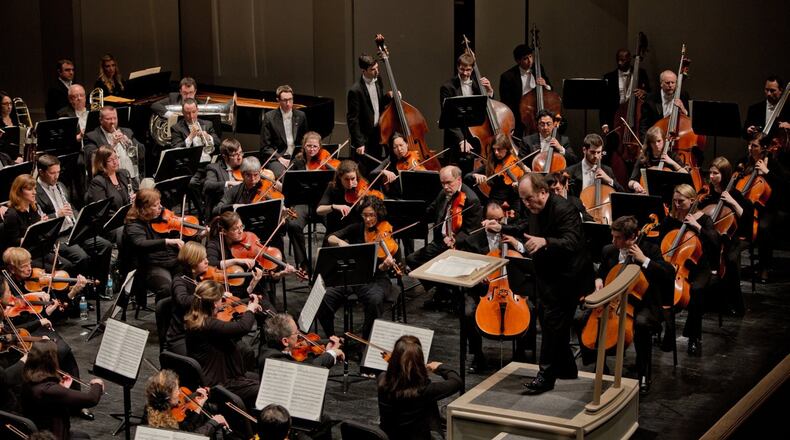The largest local award from the Shuttered Venue Operators Grant program went to Clark State College’s Performing Arts Center, which was given $224,172 in July. Also receiving funding are the Westcott House ($85,953), the Springfield Symphony Orchestra ($55,744), and Blessing Enterprises ($9,946), all of which are based in Springfield.
Crystal Jones, Vice President for Marketing, Diversity and Community Impact, noted that Clark State applied and was awarded the funding based upon staffing expenditures that the college incurred during the pandemic due to not laying off or eliminating any positions in the performing arts center.
“The college intends to use the funds received to invest in capital expenditures that will support the ongoing operations of our event/performing arts space and enhance the patron experience,” Jones said.
Credit: Bill Lackey
Credit: Bill Lackey
The Performing Arts Center had to shut down for what will be 18 months, according to Jones. A few events were canceled in 2020 — a Diamond Rio show, a Michael Bolton show and the musical “Waitress” — and then the entire 2020-2021 season was canceled due to the pandemic.
The Technical and Executive Directors within the Performing Arts Center stayed working at the center, remotely and at the building. The rest of the staff was reassigned to other areas of the college, Jones said.
“The PAC staff were some of the very fortunate people in the industry as the college kept everyone employed,” she said.
Westcott House, a work of architect Frank Lloyd Wright, received its funding in mid-July, director Marta Wojcik said. Wojcik told the News-Sun that the museum earns nearly half of its operating budget through income sources such as tour admissions and gift shop sales, so the pandemic wiped out many opportunities for revenue for the museum. Westcott House closed its doors from March 15 to June 27 in 2020, with another closure occurring in November through March 12 this year. Wojcik noted that during the period of reopening in 2020, the museum received roughly 41% of its typical tour attendance, and overall, Westcott House experienced a 65% drop in tour attendance and 55% drop in total earned income revenue.
Wojcik said that the museum observed attendance patterns slightly improve since March, bringing in 60% of its typical annual earned income. Wojcik said the museum was “fortunate” to maintain its two full-time and four part-time employees, with the help of federal, state and local CARES Act grants.
“While hopeful for a full recovery by 2022, we continue to feel a profound impact of the shuttered tourism activity, as well as ongoing uncertainty for larger scale in-person fundraising events,” Wojcik said, pointing to the cancelation of the 15-year anniversary gala and annual Frank Lloyd Wright birthday party last year.
Springfield Symphony Orchestra Executive Director Lou Ross told the News-Sun that the funding it received through the grant program in July is going toward the payment of rent and payroll. Due to the loss of revenue from events, with 22 being canceled, the symphony missed out on $122,000.
The show still went on in some ways for the symphony, however: just virtually. The venue hosted virtual programming, such as for its jazz ensemble, and also continued its youth education program, holding rehearsals and concerts digitally.
“We had a lot of pivoting to do,” Ross said.
Staff of the symphony had to adapt to the pandemic quickly, but Ross said the community supported them through it, noting that contributing revenue nearly matched that of non-pandemic years.
Blessings Enterprises, the owner of entertainment company Alchemy House, did not return requests for comment.
Blessings Enterprises, the owner of entertainment company Alchemy House, did not return requests for comment.
Shuttered Venue Operators Grants awarded in Clark County
Clark State College’s Performing Arts Center: $224,172
Westcott House: $85,953
Springfield Symphony Orchestra: $55,744
Blessing Enterprises: $9,946
About the Author



